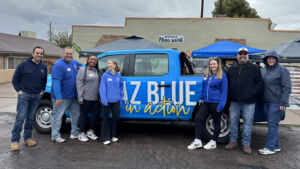As the COVID-19 pandemic has wound down, employers have called their employees back to the physical workspace, with hybrid or fully in-person work schedules. In so doing, situations that were adequately managed have become unmanaged.
DEEPER DIVE: Why women are leaving legal profession and how law firms can keep them
According to Littler’s 2023 Annual Employer Survey, since 2022, 65% of employers experienced increased requests for mental health-related leave and accommodation, 44% saw an increase in requests stemming from non-COVID-related physical health conditions, 22% had an increase in leave and accommodation requests for post-COVID conditions or long-COVID, 12% received increased requests due to new state or local law requirements, and 5% had more leave or accommodation requests relating to other respiratory viruses or illnesses. Despite overall accommodation requests having dramatically increased since the beginning of the pandemic, just half of employers surveyed expanded their leave and accommodations offerings. It’s safe to say that employers are feeling the aftermath of COVID and the damage left in its wake.

Employers have seen interesting requests as workers returned to some degree of in-person work, like requests to bring unique emotional support animals (pigs, lizards, horses, and you name it) to work and permanent start-when-I-want-and-work-when-I-feel-like-it-schedule requests. While some requests may be disingenuous and just a savvy way to manipulate the system, it’s important not to let your inner skeptic creep in and to remain objective. One of the main reasons is ADA compliance. The other is litigation. That’s because employees are bringing lawsuits or at least threatening to, based on impairments allegedly caused by COVID-19 and its after-effects and the employer not responding appropriately to requests for accommodations. So, when that unique accommodation request comes in, no matter how far your eyebrow raises, hold on to your emotional support pig because employers must still individually access the employee’s request. Whether a COVID-19 infection or those long-COVID symptoms qualify as a disability requires a case-by-case and fact-specific assessment, considering the totality of circumstances. Don’t forget about other federal laws (like the FMLA), and the myriad potential state and local complementary laws offering greater protections for multi-state employers.
The EEOC takes the position that COVID-19 can worsen an employee’s “pre-existing condition that was not substantially limiting, making that impairment now substantially limiting.” These limitations do not have to last any particular length of time to be “substantially limiting,” and mitigating measures or treatments used for COVID-19
themselves can have negative side effects that may substantially limit an employee’s bodily functions or major life activities.
Courts increasingly allow disability discrimination claims to proceed where plaintiffs claim they’re at a high risk for contracting COVID-19, and some courts have allowed COVID-19 ADA claims to survive motions to dismiss on “regarded as” theories.
These accommodation requests are flooding your Human Resources teams, who are already burdened with other return-to-work demands, and based on seemingly increased litigation, including complaints, pre-suit demand letters, and agency charges, folks may have forgotten what should be done to mount a sound defense against ADA claims. This is a recipe for costly and distracting litigation. But a few practical tips can go a long way.
Accommodation requests based on medical conditions should be taken seriously. Document your interactive efforts with employees. If employee requests are unclear, don’t be afraid to ask follow-up questions. Brainstorm creative solutions and alternatives. Remember that employers must articulate the essential job functions, including why an employee’s presence in-office is essential. And what might seem impossible to accommodate now, could become routine tomorrow – like working from home during COVID.
Author: Sarah N. O’Keefe’s practices in employment law, including litigation, for Littler. You can read more about O’Keefe here.




